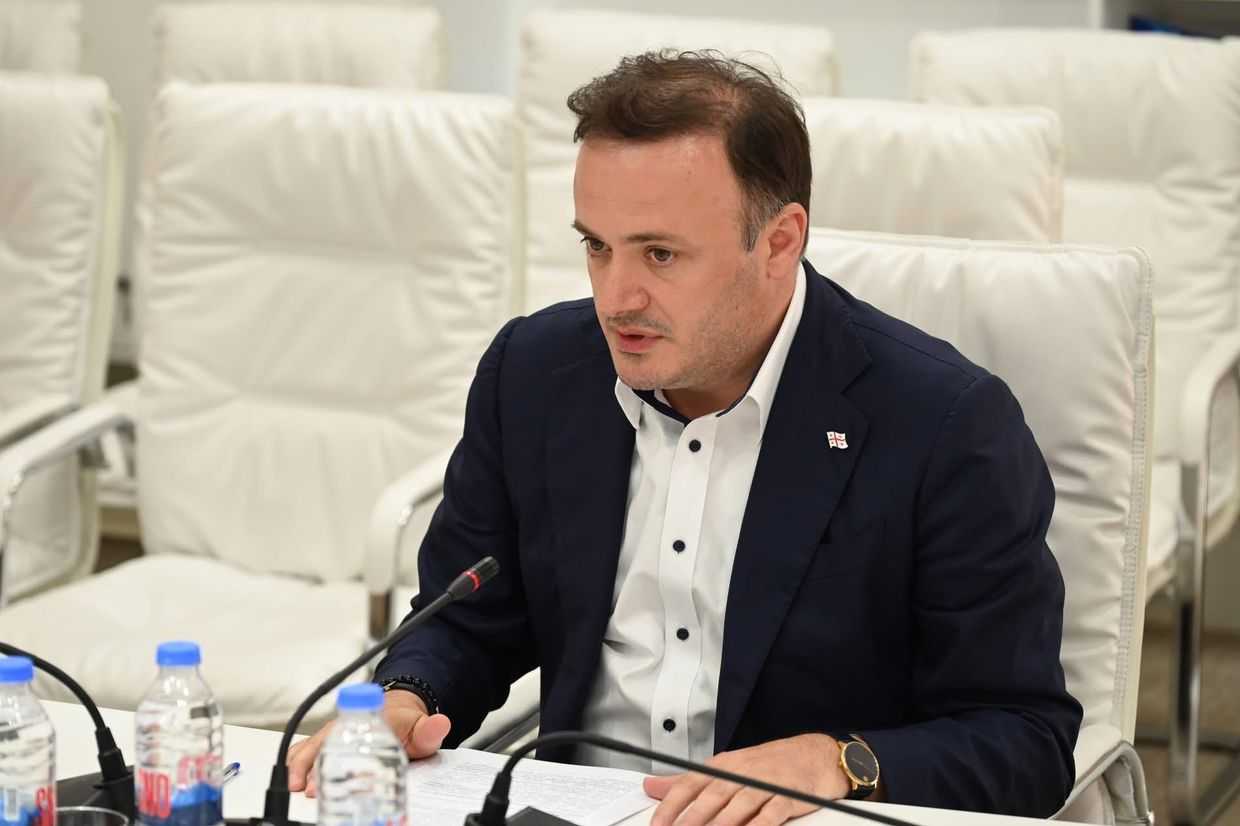
Protesters opposed to the construction of the Namakhvani hydropower plant in northwest Georgia have vowed to paralyse Tbilisi demanding the cancellation of the controversial project.
On Sunday, thousands gathered in the Georgian capital, setting up tents to block First Republic Square. By Monday, a smaller number of protesters marched from Republic Square to Freedom Square, which was closed off to traffic in preparation for Independence Day celebrations on 26 May.
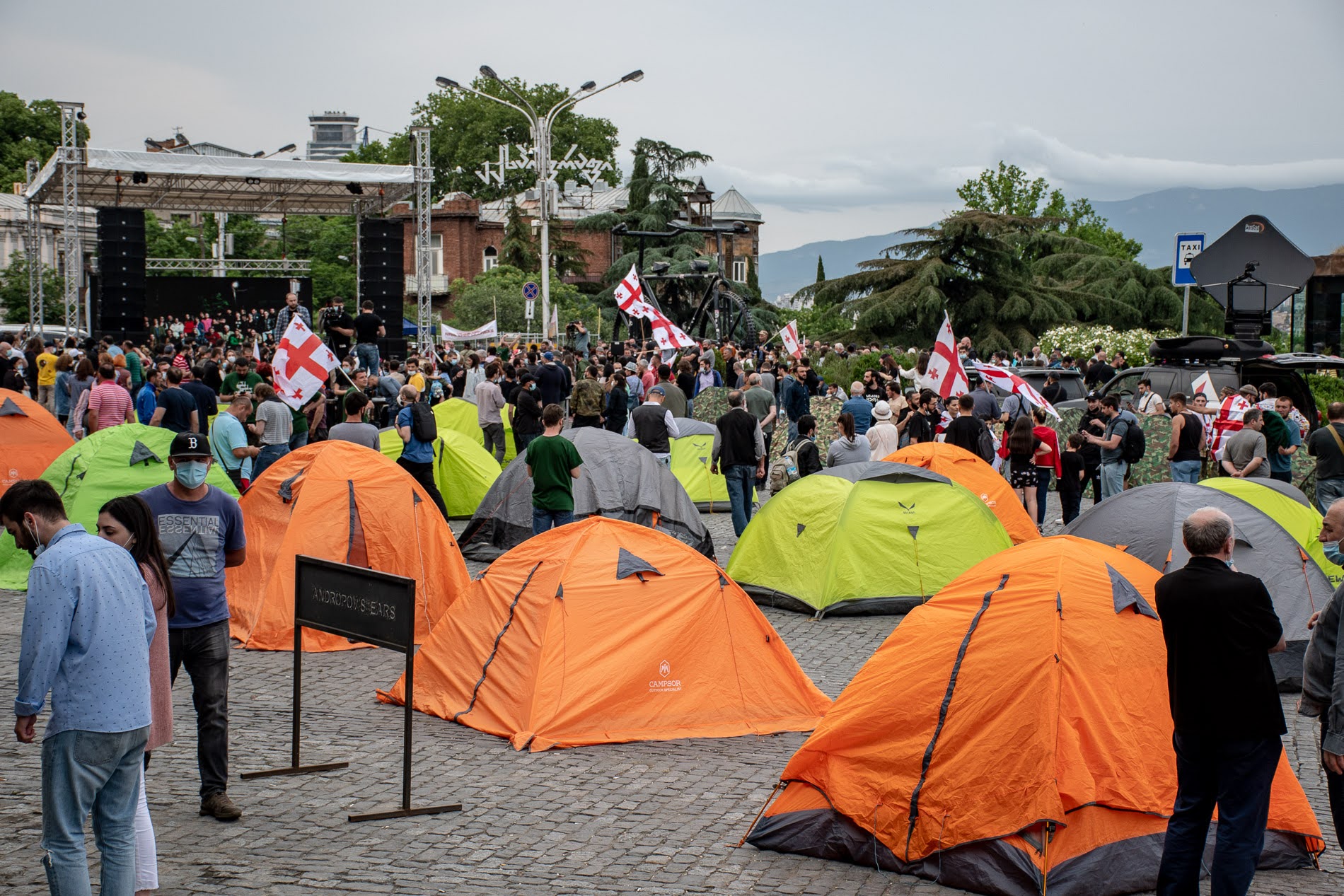
Protesters moved to Tbilisi over the weekend after 208 days of continuous protests near the site of the planned dam as well as several large demonstrations in Kutaisi.
The protests are being spearheaded by the Rioni Valley Defenders, a grassroots movement opposed to the dam. On Sunday, the group’s leader, Varlam Goletiani, called for a criminal investigation into Economy Minister Natia Turnava and other signatories of the deal with Enka Renewables to build the project.
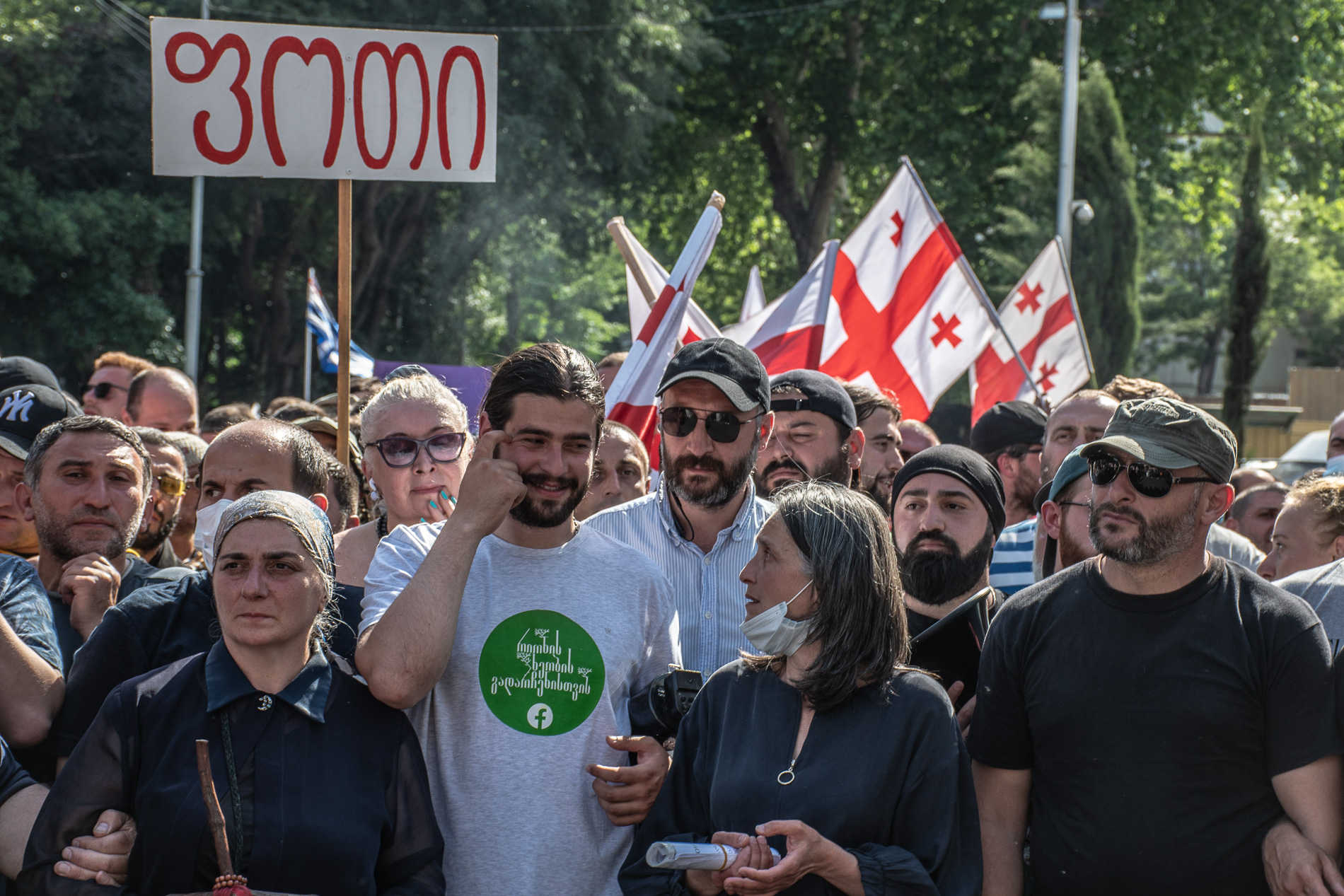
Protesters made the decision to move to Tbilisi after the government effectively locked down most of the Rioni valley last month.
Tbilisi-based rights group the Social Justice Center has argued that the government’s erection of police checkpoints at the entrances to the valley and removal of protest tents in the village of Namakhvani violated local residents’ freedom of movement and freedom of assembly.
[Read more on OC Media: Villages under blockade after government’s failed public outreach over energy project]
Critics of the $800 million Namakhvani project, which is being built by Turkish construction firm Enka Renewables, argue that the risks and impact have not been properly studied, and that the dams will affect the environmental, social, and cultural setting in Georgia’s Imereti and Lechkhumi regions. The government has insisted that the project is safe and essential to Georgia’s energy security.
The Namakhvani HPP project would include two dams with a planned combined capacity of 433 MW. The government says this will produce 1514 GWh of electricity per year, over 12% of the country’s electricity consumption.
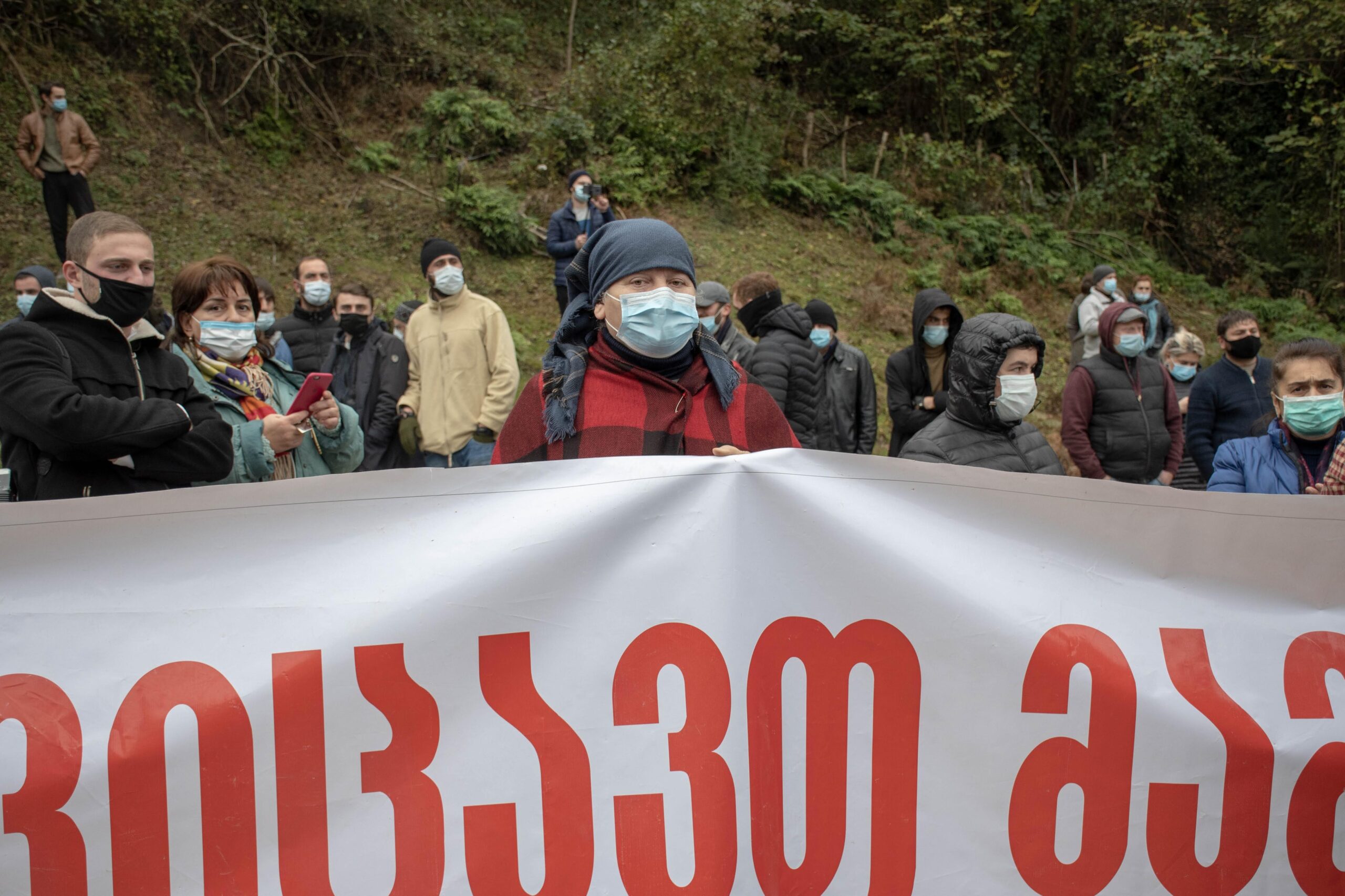
In response to the backlash against the project, on 24 April the government announced a ‘9-12 months moratorium’ on the construction of the Namakhvani project until additional feasibility and safety research would be done.
However, construction has appeared to have continued on the project, which Enka Renewables has described as ‘preparatory work’. Opponents have responded that such work was part of the original plan, and that therefore there was no moratorium in effect.
The campaign under scrutiny amidst an information war
The government’s backing of the project has remained focussed on the expected contribution to balancing Georgia’s domestic electricity demand and improving energy independence.
Government ministers have been largely absent from the public discussions about the Namakhvani project, leaving Enka Renewables and certain experts to respond to criticism.
However, supporters of the anti-Namakhvani movement have claimed to have been targeted by a concerted smear campaign against them.
Protest leaders have claimed that coverage of the issue by most major national TV channels, including but not restricted to pro-government leaning TV companies, has been biased against them.
There has also been a proliferation of overtly discrediting and misleading messages against the anti-Namakhvani movement on social media. This has included several anonymous, recently created Facebook pages that have paid to promote content critical of the protests.
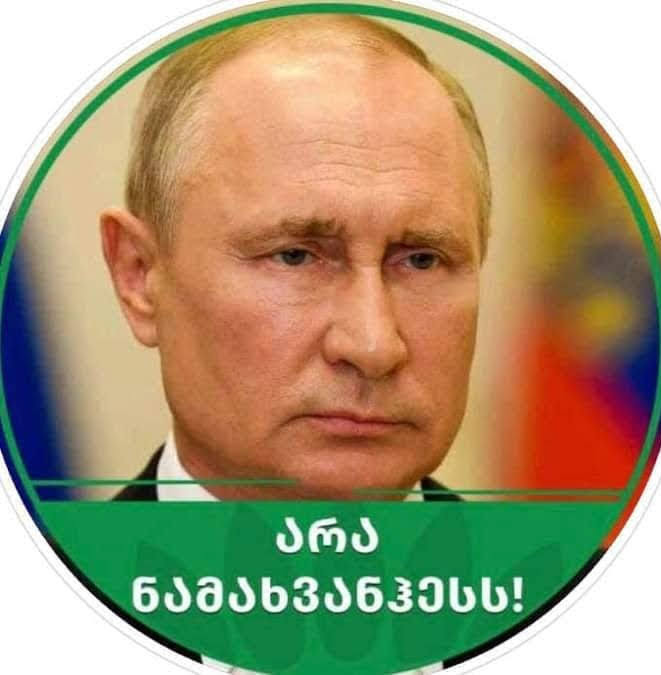
Some of the criticism against the anti-Namakhvani movement has also focussed on their apparent failure to clearly distance themselves from several ultra-conservative groups supporting the movement.
On Monday, two groups that have supported the movement up until now, the Social Justice Centre and queer rights group the Equality Movement, called on the protest leaders to disavow ‘violent groups’. The call followed at least two homophobic incidents during the demonstrations in Tbilisi.
In an interview with TV channel Formula on 29 March, Turkish Ambassador to Georgia Fatma Ceren Yazgan accused the protesters of harbouring ‘anti-Turkish’ and ‘Islamophobic’ elements, due to their use of Christian symbology during their campaign. Demonstrators have several times carried and erected large crosses near the dam construction sites as a form of resistance.

